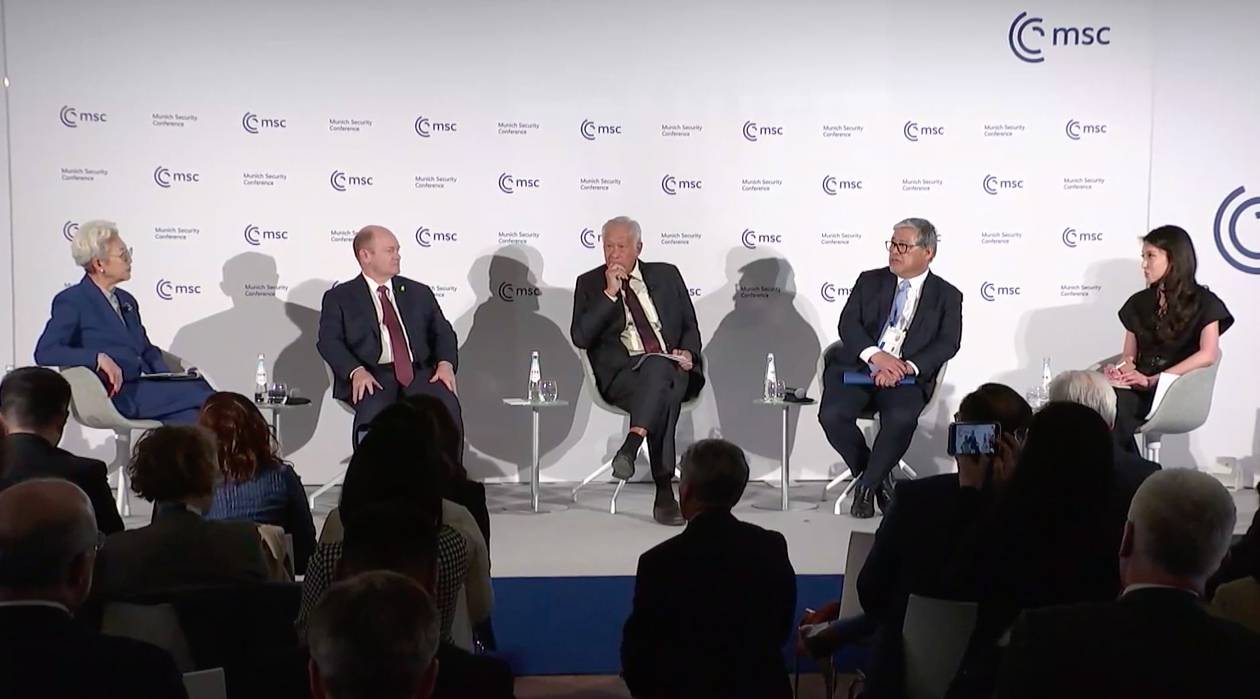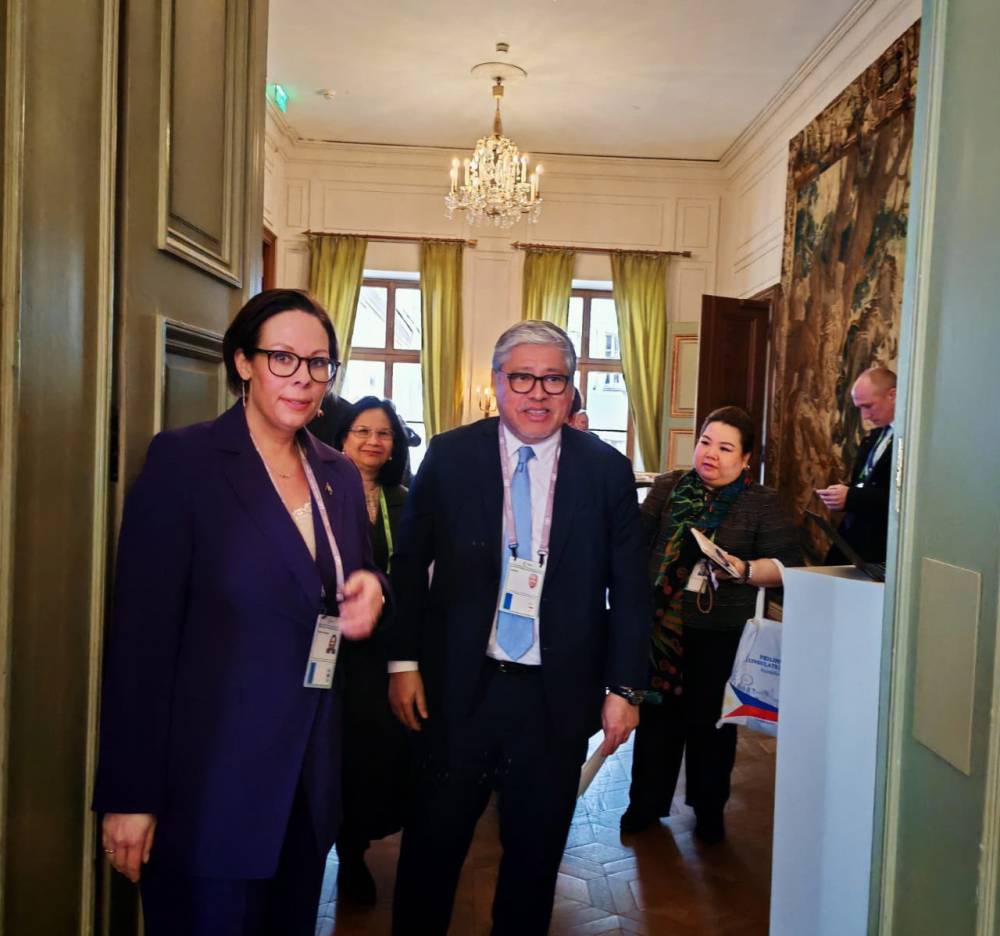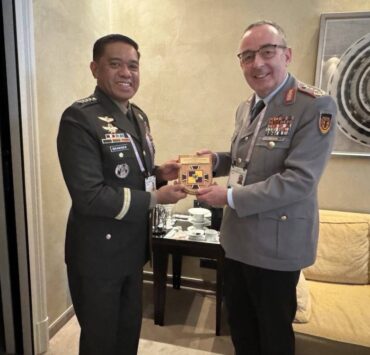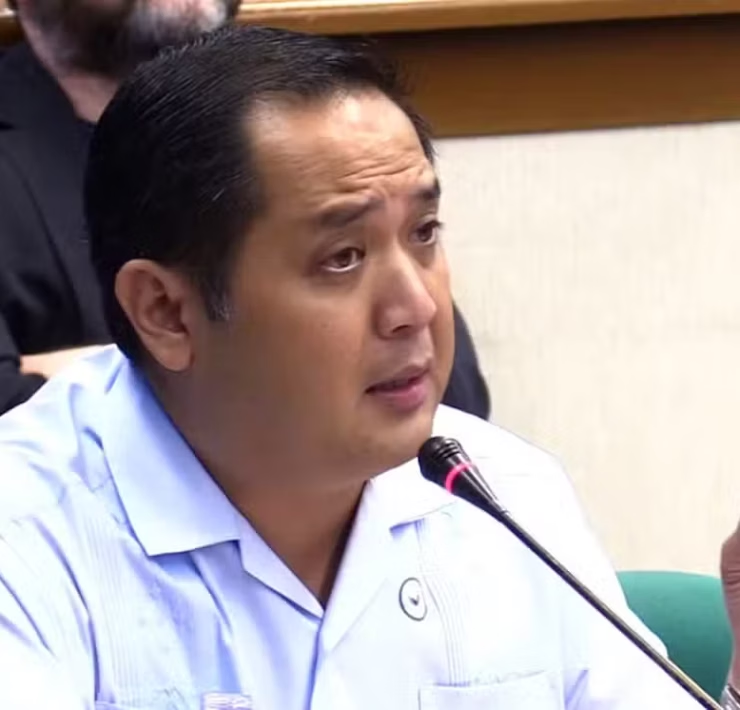Manalo asserts PH rights, int’l law in Munich forum

Foreign Secretary Enrique Manalo has called out countries that “reinterpret” international laws and cause tensions in the South China Sea.
Speaking at a panel discussion alongside China’s former foreign vice minister at this year’s Munich Security Conference, Manalo asserted that the Philippines is merely exercising its rights, in compliance with the United Nations Convention on the Law of the Sea (Unclos), whenever it undertakes any kind of activity within its exclusive economic zone (EEZ).
“But when another country, let’s say, applies its own domestic laws to certain areas within our (EEZ), then it really does create the kind of tension that we have been experiencing, especially over the last two years,” Manalo said on Saturday during the forum that tackled maritime strains in the Indo-Pacific.
He was ostensibly referring to China’s so-called nine-dash line that Beijing uses to claim nearly the entire South China Sea, in the process encroaching on the EEZs of the Philippines, Vietnam, Brunei, Indonesia, Malaysia and Taiwan.
The panel featured four resource persons, including Manalo, China’s former Foreign Vice Minister Fu Ying, US Sen. Christopher Coons and Singapore Defense Minister Ng Eng Hen.
Moderator Lynn Kuok, Lee Kuan Yew chair of the Center for Asia Policy Studies at The Brookings Institution, started the discussion by tackling the military cooperation between the United States and the Philippines, particularly the former’s commitment to the Mutual Defense Treaty.
Coons and Manalo both reaffirmed that the relationship between the two nations remained strong despite recent developments under the new Trump administration.
China‘s ‘ownership’
Kuok then turned to Fu asking her about where she would attribute the recent spike in tensions between China and the Philippines around Ayungin (Second Thomas) Shoal as well as in Escoda (Sabina) Shoal.
According to Fu, in spite of the flash points over the years, there has not been a war in Asia because after the end of the Cold War, the whole region had a “very strong consensus” of one common objective–to develop the economy and maintain peace and stability.
The South China Sea dispute, she said, was “nothing new” but Beijing became concerned when Washington started to pay attention to the issue.

“What concerns China now is the shadow of the US behind the claimants. That alerts the Chinese side. There’s a greater concern about losing these territories. We cannot lose them,” Fu pointed out.
“We have a very strong position on ownership, but as one of the major countries in the region, we have to take responsibility about regional stability,” she added.
High tensions
Kuok then asked Manalo if he agreed with Fu’s perspective that it was “quite peaceful” in the South China Sea, to which the Philippines’ top envoy replied: “There’s not a conflict but there’s certainly high tensions and the potential for the tensions to even rise further.”
“Our basic point is we have to follow international law as agreed. And in this case, the [Unclos],” Manalo said.
“Countries which are exercising their rights in accordance with that law should have the right to exercise that law. And countries, I think, who reinterpret that law or apply their own domestic laws to certain areas and try to enforce them, then I think we’re in a situation which leads to further tensions,” he added, without naming China.
Manalo noted that the only way forward was for countries that have signed on agreements, such as Unclos, to abide by the provisions of the deal.
Otherwise, “the rich, the powerful, who will actually be in a position to assert their own laws against the weaker countries, I believe then we’re in for a period of even greater tension,” he warned.
China’s harassment
When asked whether he agreed with the assessment that the Philippines had been “too forward-leaning” in pushing back against China despite its rights, Manalo responded: “No, I don’t think I could agree with that.”
Over the past years, the Philippines has encountered multiple instances of harassment within its EEZ, primarily involving Chinese maritime forces, especially during resupply missions to troops stationed at atolls within the country’s territorial waters.
In 2023, Chinese vessels rammed a Philippine Coast Guard ship and a military-run supply boat during a resupply mission to the BRP Sierra Madre at Ayungin Shoal, resulting in injuries to Philippine personnel, and also used water cannons to block the boats intending to deliver supplies to the dilapidated ship.
While many Association of Southeast Asian countries (Asean) countries would have “fairly nuanced positions” on certain issues, Manila’s top envoy said he never heard of that discussion about the country being “forward-leaning.”
“But I don’t understand why countries would consider our actions provocative. Many countries in the region have come out in support of the incidents which happened involving the Philippines. We have Japan, Australia, the Republic of Korea, Canada, many (European Union) countries [and] New Zealand,” Manalo noted.
“I think these are countries who feel that what we have been doing is in accordance with international law. And I haven’t heard any country really come out against what we’ve been doing except for one,” he added.
In questioning Fu, the moderator said it struck her that with China’s growing influence in Southeast Asia, the “main thorn” in the side of its relations with its neighbors has been the South China Sea dispute.
“So if it were worried about the United States and [American] influence in Asia, the US is already gaining ground with, say, countries like Japan, South Korea, etc. Why would China not make nice with its Southeast Asian neighbors in the South China Sea?” Kuok asked.
In response, Fu said: “You talk like China is making a game with the United States trying to either pull this neighbor close or kick that neighbor away. That’s not the Chinese way of thinking. The US has launched this strategic competition with China but you don’t hear China talking about accepting, defining our relationship with the US as competition.”
PH ‘naughtiness’
She pointed out that China “cannot agree” with the Philippines’ occupation of Ayungin and Escoda Shoal, saying it was a violation of the 2002 Declaration on the Conduct of Parties in the South China Sea.
“I remember that language, ‘not to make more moves.’ That language was watered down with the Filipino request in order for the Philippines to also sign up. So we all agreed,” Fu said.
Fu, who previously served as Chinese ambassador to the Philippines, also recounted events from 1999, when the Philippine Navy grounded the BRP Sierra Madre on Ayungin Shoal, saying it was a strategy to “occupy” the area.
“That kind of naughtiness shouldn’t be encouraged,” she said.





















